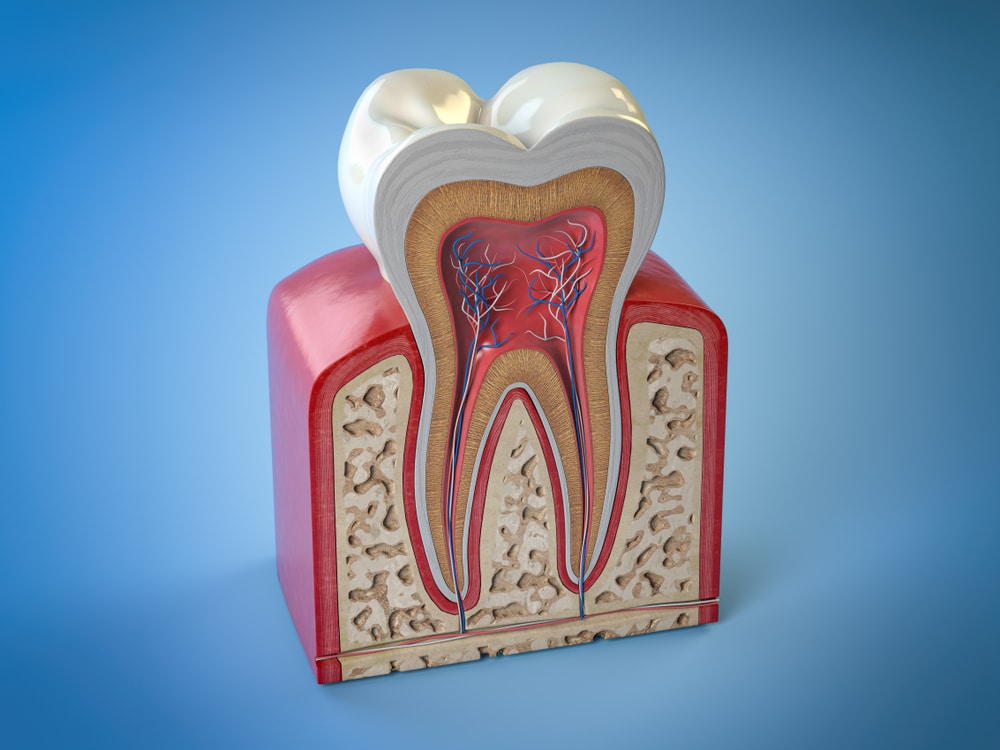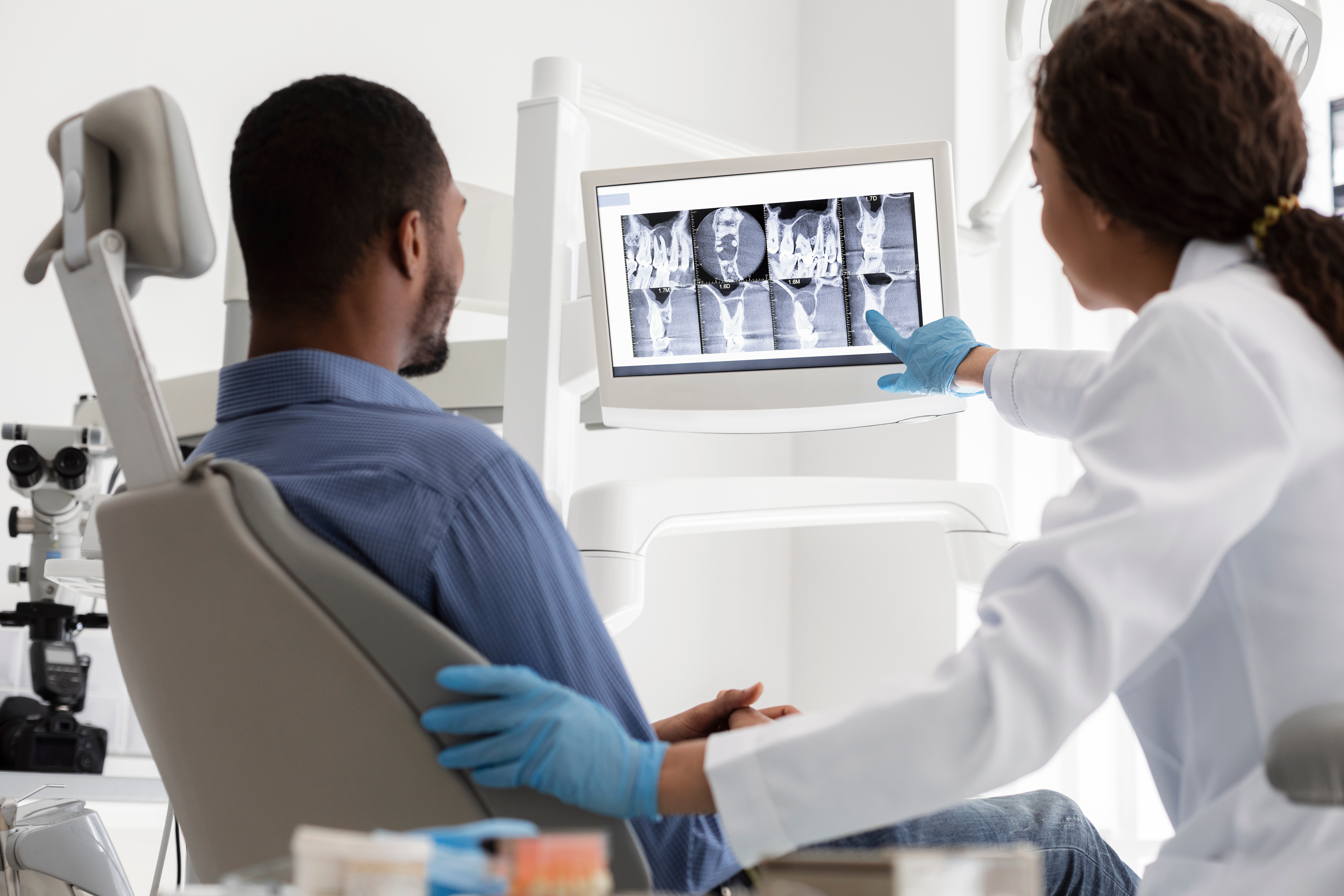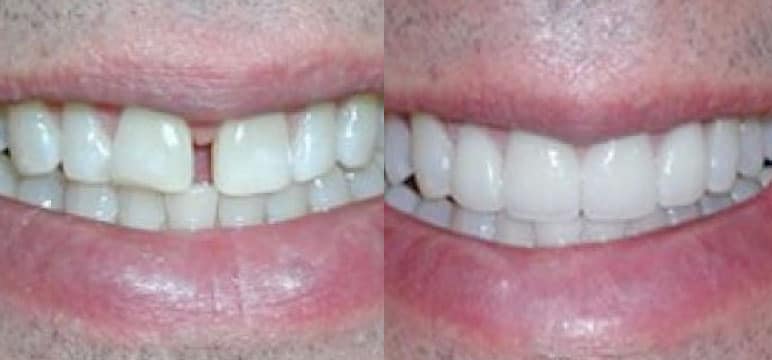
What is a Root Canal Treatment?
A root canal is a dental procedure designed to treat problems of the soft pulp tissue inside the tooth. This treatment is essential when the pulp containing nerves and blood vessels becomes inflamed or infected due to deep decay, repeated dental procedures, faulty crowns, or a crack or chip in the tooth. At Big Smile Dental, our root canal procedure involves removing the infected or inflamed pulp, then carefully cleaning and disinfecting the inside of the tooth and filling and sealing it. Contrary to common misconceptions, modern root canal treatments are similar to routine filling and can usually be completed in one or two appointments, depending on your tooth’s condition and circumstances. Our goal is to save your natural tooth and alleviate any pain or discomfort you may be experiencing. With the advancements in dental technology and anesthetics, root canal treatments at Big Smile Dental are more comfortable than ever, providing a highly effective way to preserve your natural tooth.


When is a Root Canal Needed?
Root canal treatment is necessary when the pulp inside your tooth becomes inflamed or infected. This can occur for several reasons: deep decay caused by an untreated cavity, multiple dental procedures on the same tooth, or a crack or chip in the tooth. In some cases, an injury to a tooth may cause pulp damage, even if there are no visible cracks or chips. If left untreated, this infection or inflammation can cause pain or lead to an abscess.
Signs that you might need a root canal include:
- severe toothache,
- prolonged sensitivity to hot or cold temperatures,
- discoloration of the tooth and
- swelling and tenderness in the nearby gums.
If symptoms appear suddenly or become severe, seeking emergency dental care can help address the infection quickly and prevent further complications. Our experienced dentists will diagnose the problem through a careful examination and use of X-rays and recommend the best course of treatment to preserve your natural tooth and alleviate pain.
Is a Root Canal Painful?
One common myth about root canal treatment is that it’s extremely painful. However, at Big Smile Dental, we prioritize patient comfort and use the latest techniques and anesthetics to make the procedure as pain-free as possible. Most patients report that the process is no more uncomfortable than filling. A root canal alleviates pain caused by the inflamed or infected pulp inside the tooth. You may experience some tenderness or mild discomfort in the days following the procedure, but this is typically minor and can be managed with over-the-counter pain medication. Our dental team provides comprehensive aftercare instructions and is always available to answer any questions or concerns you may have about the procedure or your recovery.
How Should I Prepare for Root Canal Treatment?
Preparing for a root canal treatment at Big Smile Dental involves a few simple steps. First, providing your dentist with a complete list of all your medications, including prescriptions, over-the-counter drugs, vitamins, supplements, and any known allergies, is crucial. If you have certain medical conditions, like a heart condition or artificial joints, you may need to take antibiotics before the procedure to prevent infection. We recommend eating a regular meal a few hours before your appointment, as you may need to wait a while after the process before eating again. After the procedure, it’s a good idea to plan a restful day, as you may feel discomfort or fatigue. Arranging for someone to drive you home after the procedure is advisable, especially if you will be receiving sedation. Finally, don’t hesitate to ask questions or express any concerns you may have during your pre-treatment consultation. Our team at Big Smile Dental is committed to ensuring you feel fully informed and comfortable with the upcoming procedure.
How Long Does a Root Canal Take?
The duration of a root canal treatment at Big Smile Dental can vary depending on the case’s complexity. Typically, the procedure is completed in one or two appointments, each lasting 90 minutes to two hours. Factors influencing the length of the process include the number of canals in the affected tooth and the extent of the infection or damage. Teeth with more canals, like molars, may require longer treatment times. At Big Smile Dental, we use advanced technology and techniques to ensure the procedure is efficient and effective. Our experienced dental team ensures that each step, from cleaning the canals to filling and sealing the tooth, is done meticulously, prioritizing patient comfort and the long-term success of the treatment.
What Happens During the Root Canal Process?
The root canal process at Big Smile Dental involves several key steps. First, the area around the affected tooth is numbed with a local anesthetic to ensure patient comfort. Then, an access hole is drilled into the tooth to reach the infected or damaged pulp. Using specialized instruments, the pulp is carefully removed, and the inside of the tooth is cleaned and disinfected to eliminate bacteria. The cleaned canals are then filled with biocompatible gutta-percha material and sealed.
A temporary filling is usually placed to close the access hole. After the procedure, the tooth often requires a crown or permanent filling to restore strength and functionality. Our team uses precise techniques to ensure the entire process is as comfortable and pain-free as possible, focusing on preserving the tooth and preventing further infection.
What Should I Expect After a Root Canal?
After a root canal procedure at Big Smile Dental, it’s normal to experience some discomfort or mild soreness, especially once the anesthesia wears off. This can usually be managed with over-the-counter pain medication. To prevent damage, patients are advised to avoid chewing on the treated tooth until it’s fully restored with a permanent filling or crown. Good oral hygiene practices, including regular brushing and flossing, are essential for healing. It’s also important to follow any specific aftercare instructions our dentists provide. Most patients can return to their normal activities the next day. Follow-up appointments may be necessary to monitor the healing process and to place the final restoration on the treated tooth.
Are Root Canals Safe?
Root canal treatments have a high success rate and are a safe and effective way to preserve your natural teeth. Concerns about the safety of root canals often stem from misinformation, particularly the outdated claim linking root canals to the risk of illness. Modern endodontic techniques and technologies have made root canal treatments safe and a routine procedure with minimal risks. In cases where a tooth cannot be saved, options like dental implants may be discussed to restore function and protect long-term oral health.
At Big Smile Dental, we adhere to strict sterilization and infection control protocols to ensure the safety and success of your root canal treatment. Our team is committed to providing a safe, comfortable, and positive experience for all our patients.
Frequently Asked Questions About Root Canal Treatment
If you’re interested in more information about dental veneers or other dental restorative options, call Big Smile Dental today! Our team is happy to schedule a consultation at a time that works with your schedule.
Your new smile is waiting for you!


